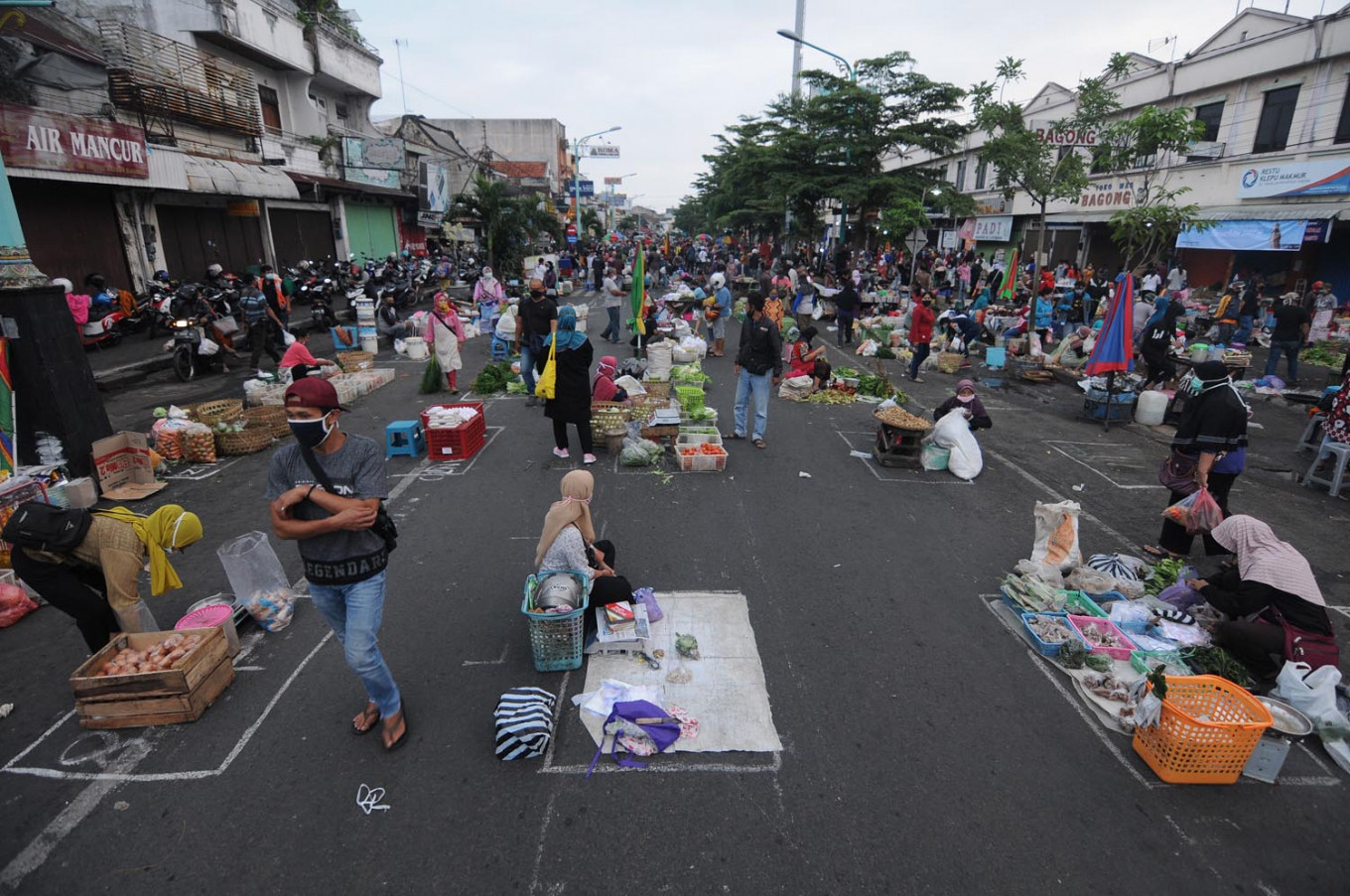Popular Reads
Top Results
Can't find what you're looking for?
View all search resultsPopular Reads
Top Results
Can't find what you're looking for?
View all search resultsIndonesia must boost recovery spending to $40b to keep businesses afloat: Kadin
Indonesian Chamber of Commerce and Industry (Kadin) deputy chairwoman Shinta Kamdani said the current budget for the economic recovery program would be insufficient to support businesses, adding that many would run out of money by June.
Change text size
Gift Premium Articles
to Anyone
T
he government should boost economic recovery spending to Rp 600 trillion (US$40.17 billion) to help businesses cope with the economic impacts of the COVID-19 crisis, as many businesses only have enough cash flow to maintain their operations for the next two months, a business lobby group has said.
Indonesian Chamber of Commerce and Industry (Kadin) deputy chairwoman Shinta Kamdani said the current budget for the economic recovery program would be insufficient to support businesses, adding that many would run out of money by June.
“The government stimulus spending is far too small and will not be enough for businesses to survive,” Shinta said during an online discussion on Thursday. “Businesses’ ability to cope with the crisis is very limited as their cashflow will only last until June.”
The government has said that it would allocate Rp 150 trillion to fund the country’s economic recovery. However, in recently leaked Finance Ministry documents, the stated budget was Rp 318 trillion, more than double the initial plan, as the government plans to provide bailout funds for state-owned enterprises (SOEs).
President Joko “Jokowi” Widodo should boost spending to about Rp 600 trillion for economic recovery, Rp 600 trillion for social safety net programs and another Rp 400 trillion for the health system, she said.
“We need faster financial stimulus to prevent further damage, or the government could just gradually reopen the economy,” Shinta said, adding that “if the government was unable to provide a significant financial stimulus, then we should really think about an exit strategy.”
The COVID-19 pandemic has triggered massive layoffs, with around 6 million people losing their jobs, according to Kadin data. This is far higher than the between 2 million and 3.7 million people projected by the National Development Planning Board (Bappenas).
Some 1,680 hotels have been temporarily closed, while only 10 percent of transportation businesses are still operating as the outbreak has had a severe impact on the tourism and transportation industries, Shinta added.
The government issued Government Regulation (PP) No. 23/2020 on the national economic recovery program to support, maintain and strengthen businesses, stipulating state capital injections for ailing state-owned enterprises (SOEs) and loan subsidies for small businesses, among other things.
The country’s gross domestic product (GDP) fell to a 19-year low of 2.97 percent in the first quarter, as emergency measures were taken by the government to halt the spread of COVID-19 crippled almost all sectors of the economy.
In the worst-case scenario, the government expects the economy to contract 0.4 percent this year from 5.02 percent growth in 2019.
The government is mulling a plan to begin easing COVID-19 social restrictions in June to allow businesses to resume operations gradually.
However, some believe that reopening the economy would be premature, as Indonesia had yet to flatten the infection curve. The national COVID-19 task force reported on Thursday that the virus has infected more than 16,000.
Chief economist David Sumual of Bank Central Asia (BCA), the country’s largest private bank by market value, warned that reopening the economy too soon might trigger a second wave of infections, and that the government needed to be “extra careful” in easing social restrictions.
“However, prolonged social restrictions will take a greater toll on the economy,” David said recently. “We might see temporary layoffs become permanent layoffs and more people falling into poverty if the partial lockdown continues [for much longer].”










